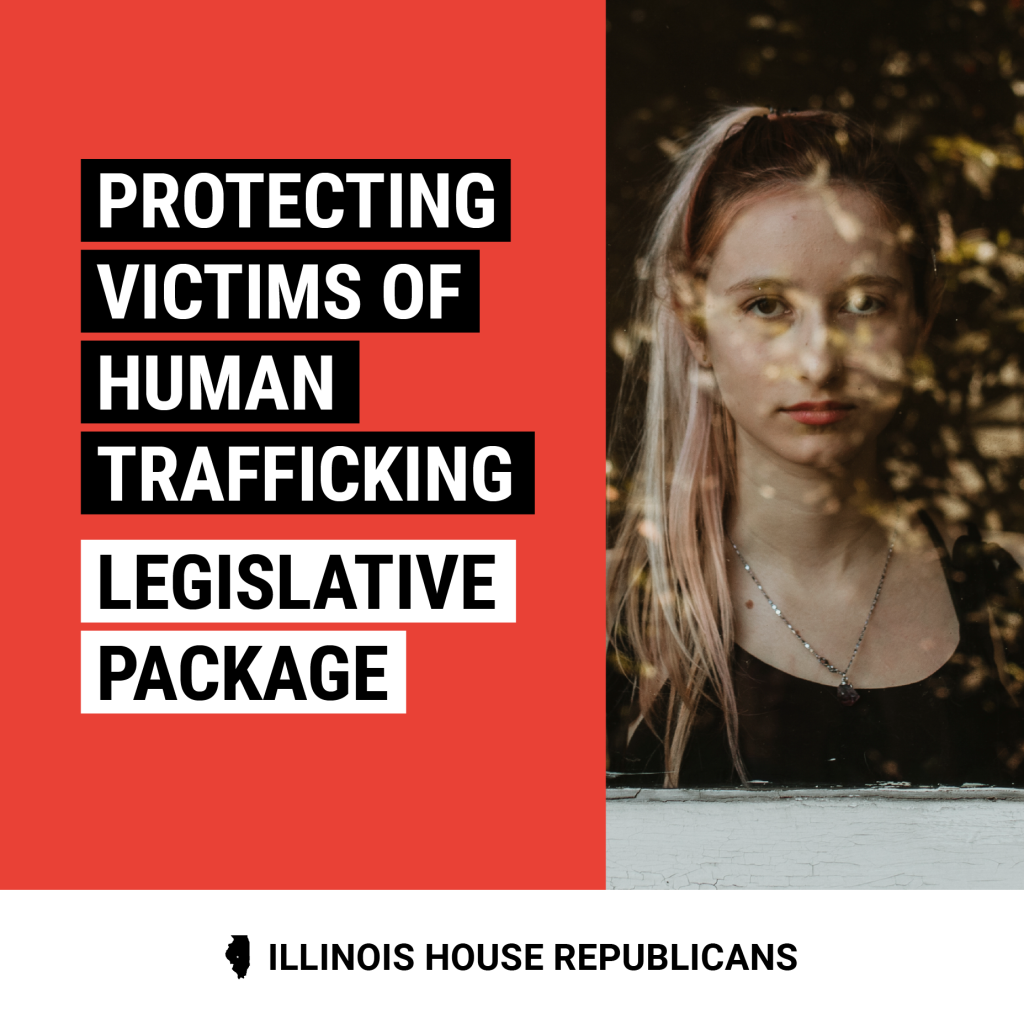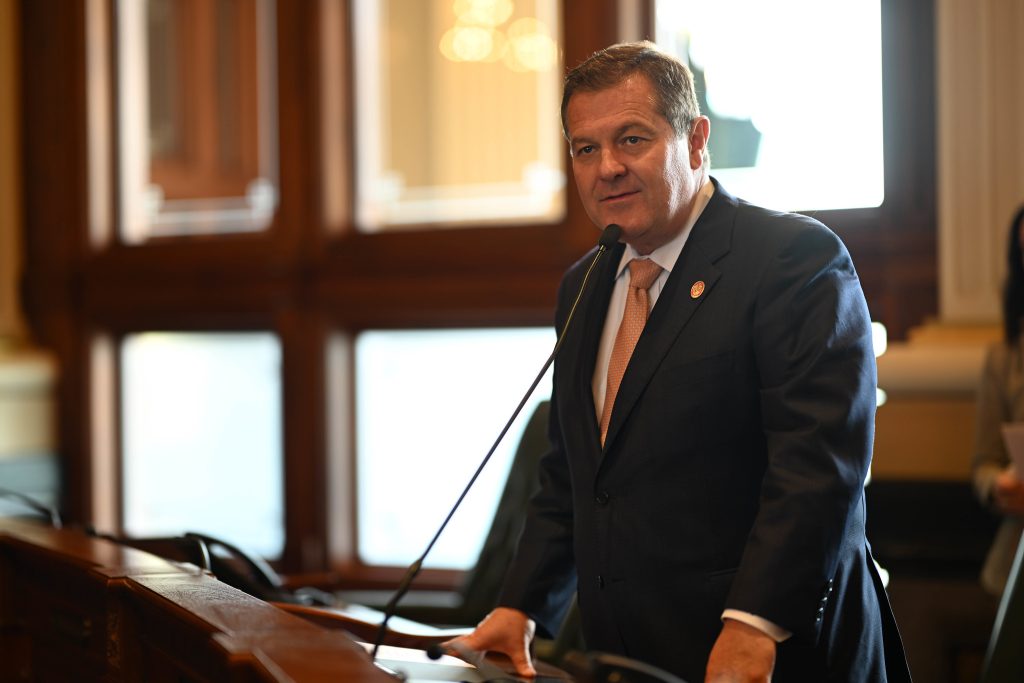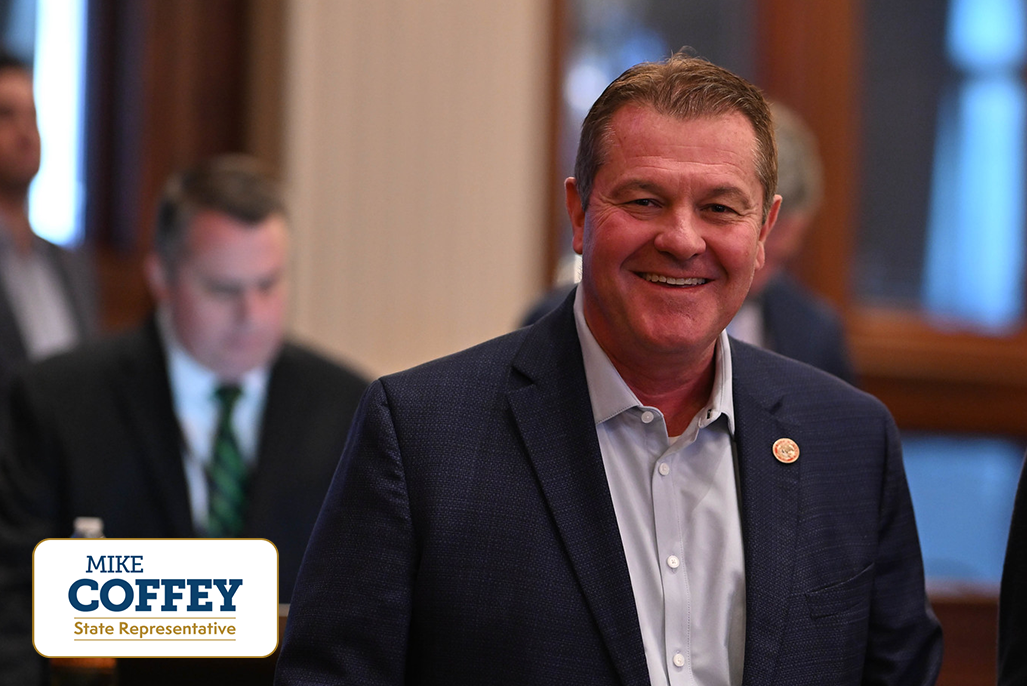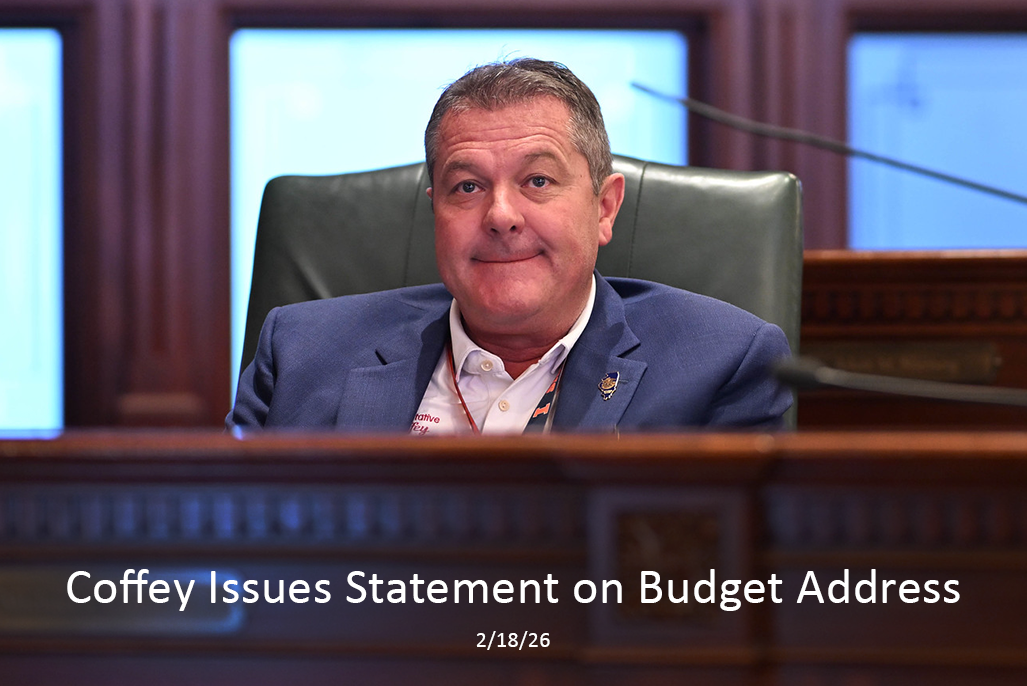BUDGET
House Republicans call for enactment of a $52.1 billion balanced State of Illinois budget for FY 2025. Under subsection (b) of Section 2 of Article VIII of the Illinois Constitution, appropriations for a fiscal year shall not exceed funds estimated by the General Assembly to be available during that year.
Under subsection (a) of Section 4 of the Commission on Government Forecasting and Accountability Act, the House and Senate are directed, by joint resolution, to adopt or modify the Commission on Government Forecasting and Accountability’s State revenue estimates for the fiscal year as may be appropriate, and the estimate in the joint resolution is to constitute the General Assembly’s estimate, under paragraph (b) of Section 2 of Article VIII of the Constitution, of the funds estimated to be available during the next fiscal year.
Unfortunately, it has been a decade since the General Assembly followed the Constitution and State statutes by adopting a revenue estimate via joint resolution. In 2014 (FY 2015), HJR 100 set forth revenue estimates of $31.1 billion in total State revenue and $4.3 billion in federal revenue, for a total of $35.4 billion in estimated revenue.
In the Governor’s FY 2025 Budget Book, the Governor’s Office of Management and Budget (GOMB) projected an FY 2025 General Funds revenue total of $52.993 billion. In March, the Commission on Government Forecasting and Accountability (CGFA) published an FY 2025 revenue estimate of $52.077 billion, which is $916 million lower than GOMB’s estimate.
However, it should be stressed that CGFA’s revenue estimate is based on current law. The FY 2025 revenue projection from GOMB included a number of revenue adjustments (tax increases) in its calculation that would require changes to State law. The net value of these revenue adjustments is approximately $1.1 billion. The Governor’s proposed tax hikes face significant opposition from both parties in the General Assembly.
The Constitution authorizes the General Assembly to appropriate no more than $52.077 billion to meet the FY 2025 general funds spending commitments of the State of Illinois. In a Joint Resolution filed this week, HJR 72, Deputy Republican Leader Norine Hammond and the House Republican Caucus seek to adopt CGFA’s revenue estimate for FY 2025 and call upon the General Assembly to enact a budget that meets its Constitutional requirements.
CRIMINAL LAW
House GOP advances 2 human trafficking victim protection bills as others remain in limbo. After Illinois received another failing grade from a national advocacy group, state House Republicans have introduced legislation aimed at further protecting victims and prosecuting perpetrators of human trafficking.
Shared Hope International, an advocacy organization that works to prevent sex trafficking, said in its 2023 Illinois report card that the state’s grade improved from 48 to 54.5 out of 100 between 2021 and 2023, but that still marked an ‘F’ grade.
“Of the six metrics that they use to grade a state’s efforts to protect victims of exploitation and support their recovery, Illinois only receives one passing grade of ‘B’ for prosecuting abusers,” Rep. Jeff Keicher, R-Sycamore, said at a news conference. “That means we have a lot of work to do, particularly when it comes to helping victims get their lives back together after traumatic events occur.”
“While we’ve made strides in certain areas, we’re failing in crucial aspects, particularly in victim protections,” Rep. Nicole La Ha, R-Homer Glen, said at a news conference. “The failing grade Illinois received highlights the urgency of this situation. We cannot continue to overlook the needs of trafficking victims.”

House Republicans have proposed seven bills to improve human trafficking protections and penalties. The bills focus on protections for minors and prosecuting perpetrators.
“If we can start creating awareness that this happens at that young age, we could start to bring attention that trafficking of all ages happens right here,” La Ha said in a recent interview.
House Bill 5465 would allow a human trafficking victim to have their juvenile record from crimes committed while being trafficked as a minor sealed or expunged. The proposal is an extension of House Bill 2418, which granted similar provisions to people who were trafficked as adults. The law was signed by Gov. JB Pritzker last year following unanimous approval by lawmakers and took effect on Jan. 1, 2024. It also allows the victim to petition remotely, and to have the petition sealed.
“Victims of human trafficking are vulnerable to committing involuntary crimes and should be protected from criminal charges. I support my colleague’s legislation to protect victims held against their will.”

“One of the first steps in helping someone heal after an immense trauma like sexual abuse is ensuring that their past doesn’t follow them around and keep them from being someone new,” Keicher, the House sponsor of both bills, said at a news conference in March.
HB 5465 unanimously passed the House on April 17 and unanimously passed out of the Senate Special Committee on Criminal Law and Public Safety on May 1. The bill now awaits Senate consideration.
La Ha’s House Bill 5467 unanimously passed the House on April 17. It would remove the statute of limitations for a victim to press charges of trafficking, involuntary servitude, and involuntary sexual servitude that occurred when the victim was a minor. Under current law the prosecution must start within 25 years of the victim turning 18.
La Ha said the bill allows victims to “come to terms with their trauma in their own time” by giving them a greater window to “bring their trafficker to justice.”
STATE GOVERNMENT
State of Illinois to create new Department of Early Childhood. The new State department will specialize in early childhood programs currently within the Department of Children and Family Services (DCFS), the Illinois Department of Human Services (IDHS), and the Illinois State Board of Education (ISBE). Creation of the Department of Early Childhood, a process that will take place over a two-year period, is expected to enable the operation of a merged, integrated agency in FY27, starting in calendar year 2026.
Enactment of Senate Bill 1 to create the new Department of Early Childhood begins this transitional two-year period. During this time, certain offices within the existing Departments that are slated for transition to the new Department will prepare for the July 1, 2026 merger. The new Department will oversee early intervention services, home-visiting programs, child care and day care licensing, the administration of the child care assistance program, and the administration of the Preschool for All initiative.
The General Assembly is also preparing to appropriate $13 million to the new Department for FY25 expenses related to transition planning. Some House Republicans raised questions and concerns about allocating a massive sum of money to a transitional program for an interdepartmental Springfield merger that has not yet been fully planned. The House approved creation of the new Department on Thursday, May 9, by a vote of 93-18-0.
Lawsuit filed against alleged abuse at State juvenile justice centers. The lawsuit, filed this week, seeks substantial monetary damages for alleged acts of sexual abuse involving residents and detainees. Illinois juvenile justice centers are administered by licensed entities, counties, and by the State of Illinois, and include both outpatient and residential facilities. State-run residential detention facilities for juveniles are operated by the Illinois Department of Juvenile Justice (IDJJ).
IDJJ facilities in Illinois include those facilities for juvenile offenders that used to be called “boot camps.” They feature far less of the signs and elements of imprisonment than a prison for adults would have, but they are also places of detention. The lawsuit covering alleged acts of abuse covers year 1996 through 2017, during administrations operated by four separate Illinois governors. The law firm handling the Illinois case has also filed similar cases against state authorities in Maryland, New Jersey, and New York.
House Republicans speak out against continued licensing delays. The State agency that awards licenses to most professionals, the Department of Financial and Professional Regulation (DFPR), is slow to respond when Illinoisans apply for new licenses or move to renew existing licenses. This is a significant concern, because professionals need an up-to-date, current license in order to legally do the jobs for which they have been trained and educated. In addition, there are severe problems of legal liability when someone tries to practice a profession during a “bridge period” or “gray period” without a license, and these challenges extend outward to each unlicensed professional’s partners and co-workers.
In thousands of incidents reported to House Republican members and their legislative colleagues, Illinois residents have completed the licensure paperwork, sent money to DFPR, and then nothing happens for weeks. The Department explains that “we are backed up,” and further claims that they have been working for more than 12 months to install a new computer software program. The new program, when it is up and operating, is supposed to generate an automated process for Illinoisans to submit a license application or license renewal application to DFPR, and for DFPR to efficiently process the application.
However, as of May 2024 no actual operating program has emerged for this purpose at DFPR. Reports indicate that the U.S. software industry has problems with how DFPR operates, particularly the security of DFPR’s computer system, and does not want to sell or lease valuable intellectual property to a Department that operates what the industry considers to be insecure infrastructure. As of May 2024, none of DFPR’s licensure software modernization promises have been met and House Republican members grilled the Department’s head at a hearing held this week in Springfield.





